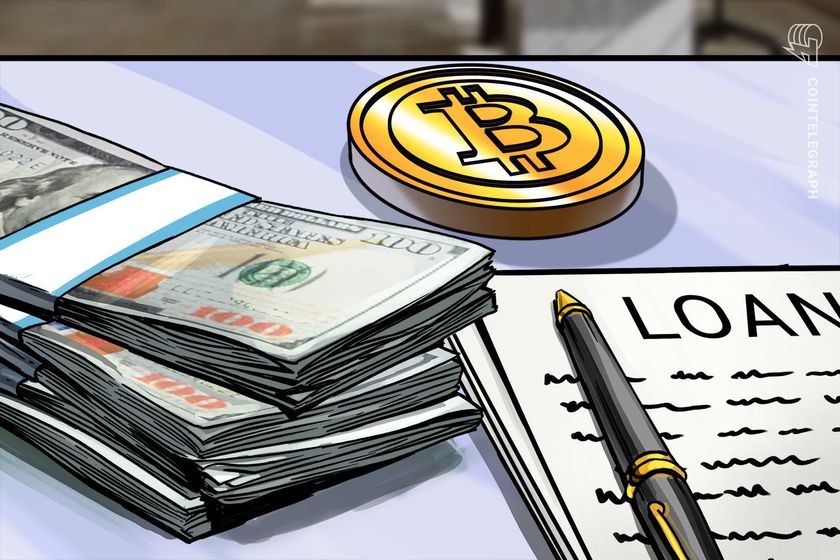

Xapo Bank, a global cryptocurrency-friendly bank headquartered in Gibraltar, is betting on crypto lending revival by launching Bitcoin-backed US dollar loans.
Qualifying Xapo Bank clients can now access Bitcoin (BTC) loans of up to $1 million, the firm said in an announcement shared with Cointelegraph on March 18.
The new lending product is designed for long-term Bitcoin hodlers who want to access cash while keeping their BTC, Xapo Bank CEO Seamus Rocca told Cointelegraph.
“Unlike traditional assets, Bitcoin is an ideal form of collateral — it is borderless, highly liquid, available 24/7, and easily divisible, making it uniquely suited for lending,” Rocca said.
No collateral re-usage
A key distinction of Xapo’s Bitcoin loan product is that the bank does not rehypothecate the loan collateral by users, meaning that its lending mechanism does not involve the re-usage of BTC assets by clients.
Instead, the Bitcoin collateral is stored in Xapo’s BTC vault using institutional multiparty computation (MPC) custody.
Working of a crypto lending platform.
Eligible Xapo clients can choose repayment schedules of 30, 90, 180 or 365 days, with no penalties for early repayment, the firm said.
Who is eligible?
Xapo’s new Bitcoin lending offering will be available to pre-approved members based on several criteria.
The key criteria for eligibility are the amount of Bitcoin holdings and the period of holdings, as Xapo specifically targets long-term BTC holders with a long-term investment strategy.
According to the bank, the offering will be available to global investors in regions like Europe and Asia, excluding residents of the United States.
The list of jurisdictions supported by Xapo Bank. Source: Xapo Bank
Xapo Bank is regulated by the Gibraltar Financial Services Commission under the Financial Services Act 2019. In 2024, the bank successfully passported its banking license in the United Kingdom, granting its Xapo Bank App full access to the country.
While Xapo’s lending is offered across the European Union, crypto lending is not covered by local regulations like the Markets in Crypto-Assets framework.
A revival following numerous collapses
Xapo Bank’s new BTC loan launch comes a few years after the crypto lending industry suffered a major crisis in 2022.
The crisis came amid the historic Terra crash and a subsequent bear market that triggered the collapses of major lending providers like Celsius and BlockFi.
“The collapse of Celsius, BlockFi, and other centralized lenders significantly eroded trust in the crypto lending space,” Xapo Bank CEO told Cointelegraph.
An example of the Bitcoin lending process on the Xapo Bank App. Source: Xapo Bank
“Borrowers today exercise greater caution, prioritizing platforms with a proven track record in Bitcoin custody and those that offer secure, transparent solutions — especially ones that do not engage in rehypothecation,” Rocca said, adding:
“At the same time, demand for Bitcoin-backed loans is on the rise, particularly among high-net-worth individuals and institutional investors who seek liquidity without selling their Bitcoin holdings.”
In addition to removing asset rehypothecation and MPC security, Xapo offers risk management tools and proactive protection to prevent automatic liquidations.
Related: Bitwise makes first institutional DeFi allocation
“In the event of a Bitcoin price drop, customers receive instant notifications, allowing them to either top up their collateral or make partial repayments to maintain their loan status,” Rocca noted.
Xapo is not the only firm that has been working to introduce lending products in 2025. In early March, Bitcoin developer Blockstream secured a multibillion-dollar investment to launch three new institutional funds, with two of them offering BTC lending.
Magazine: ETH may bottom at $1.6K, SEC delays multiple crypto ETFs, and more: Hodler’s Digest, March 9 – 15



